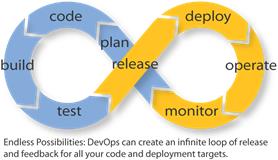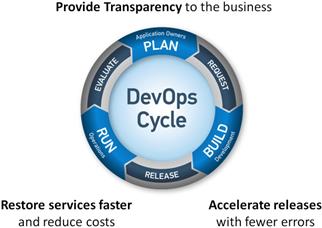DevOps strategies & best practices
By Alex Carter on October 22, 2024
In today’s fast-paced digital landscape, organizations are under immense pressure to adapt and innovate rapidly. The rise of mobile and cloud computing has transformed business operations, with mobile devices becoming the primary computing choice and applications evolving into complex, integrated solutions. To keep pace with these demands, companies are increasingly turning to DevOps—a cultural and technical shift that fosters collaboration between development and operations teams to streamline software delivery.
The Importance of Automation in DevOps

Investing in automation tools is critical for successful DevOps implementation. Automation enhances the efficiency and speed of infrastructure management, providing shareable and traceable paths for development processes. The benefits of automating testing and deployment are clear: continuous integration (CI) tools enable developers to run unit tests, deploy code, and execute integration tests with minimal effort, freeing them to focus on writing quality code rather than tracking down bugs.
A plethora of tools has emerged to assist in automating build, test, monitoring, and deployment processes. Notable platforms include:
- Jenkins: An open-source continuous integration service that is highly extendable with numerous plugins.
- AnsibleWorks: Offers an orchestration engine for easier application and system deployment.
- Puppet Labs: An open-source ecosystem for configuration management.
- Modernizr: A JavaScript library for detecting browser support and handling compatibility issues.
These tools help organizations transition to a more efficient software development lifecycle, enabling faster time-to-market for applications.
Understanding DevOps: Definition and Significance
DevOps can be defined as a set of principles, methods, and practices that improve communication and collaboration between software development and IT operations professionals. This approach addresses the interdependence of these disciplines in achieving the goal of rapidly producing high-quality software products and services.
At its core, DevOps embodies a cultural shift that recognizes the necessity for agility, adaptability, and seamless cooperation among different business units. It emphasizes excellent customer service, cost savings, and operational efficiency—essentially reimagining how people, processes, and technology collaborate to deliver superior products and services.
Kickstarting Your DevOps Strategy

Launching a successful DevOps strategy involves several key steps:
- Get Executive Buy-In: Securing support from senior management is crucial. Articulate the benefits of DevOps in terms that resonate with executives, highlighting potential returns on investment and faster delivery of quality applications. Organize demonstrations of cloud-based testing and automation tools to illustrate cost savings and efficiency;
- Build a DevOps Roadmap: Outline your strategy, defining clear objectives for short-term (3-6 months) and long-term (1-5 years) goals. Key performance indicators (KPIs) such as deployment frequency and time to resolution should be monitored to gauge progress. A dynamic roadmap should adapt as new insights and challenges arise;
- Foster Continuous Software Delivery: Central to DevOps is the principle of continuous software delivery, which aims to move ideas into production efficiently. This approach relies on continuous integration practices, ensuring that code is always in a deployable state. Establish a dedicated test environment to validate your continuous delivery processes.
Transforming Organizational Culture
While technology is a critical component of DevOps, cultural transformation is equally important. Organizations must promote effective collaboration and communication to foster a conducive environment for innovation. Behavioral change can lead to cultural shifts; thus, encouraging creativity and rewarding innovative solutions is essential.
Creating a culture that values experimentation and learning will help organizations overcome resistance to change. Initiatives such as monthly innovation contests can motivate employees to seek more efficient solutions to time-consuming processes.
Leadership plays a pivotal role in this transformation. When executives model new behaviors and embrace cultural changes, it inspires the entire organization to follow suit.
Conclusion
DevOps represents a monumental shift in how software development and deployment are approached. By investing in automation, securing executive support, fostering continuous delivery, and promoting a culture of collaboration, organizations can enhance their ability to respond to market demands swiftly. As businesses continue to navigate the complexities of modern software development, embracing DevOps principles will be essential for achieving sustained success and delivering exceptional value to customers.
Posted in blog, Web Applications
Alex Carter
Alex Carter is a cybersecurity enthusiast and tech writer with a passion for online privacy, website performance, and digital security. With years of experience in web monitoring and threat prevention, Alex simplifies complex topics to help businesses and developers safeguard their online presence. When not exploring the latest in cybersecurity, Alex enjoys testing new tech tools and sharing insights on best practices for a secure web.
